Aided by a grant under the Brown Craig Travel Fellowship, Dr Alexander “Alex” Chen was able to enhance his surgical and professional skills through a year spent working and learning in a Taiwanese hospital.
Alex currently practices obstetrics and gynaecology in Western Sydney, with public appointments at Westmead and Auburn Hospitals and private appointments at Westmead and Norwest Private, having previously worked in Victoria, Tasmania, and NSW. A fluent Mandarin speaker, Alex had long been interested in the possibility of working overseas and learning about a different healthcare system, while also enhancing his O&G skills. The opportunity came to fruition in January 2021, when he was awarded a Brown Craig Travel Fellowship grant from the RANZCOG Women’s Health Foundation.
Established 1964, the Brown Craig Fellowship provides funding for recipients to visit any country outside Australia or New Zealand to study a scientific, research or clinical subject relating to the practice of O&G. The award of a $5,000 grant helped cover Alex’s travel, accommodation and general living costs as he spent a year working at China Medical University Hospital in Taichung City, Taiwan.
“My year in Taiwan was an incredibly rewarding experience in regards to my broader professional development and in terms of my intensive surgical exposure in gynaecological oncology, urogynaecology, benign gynaecology and endometriosis surgery,” says Alex. “I am deeply grateful to have received the Brown Craig Travel Fellowship, which helped make this placement possible.”
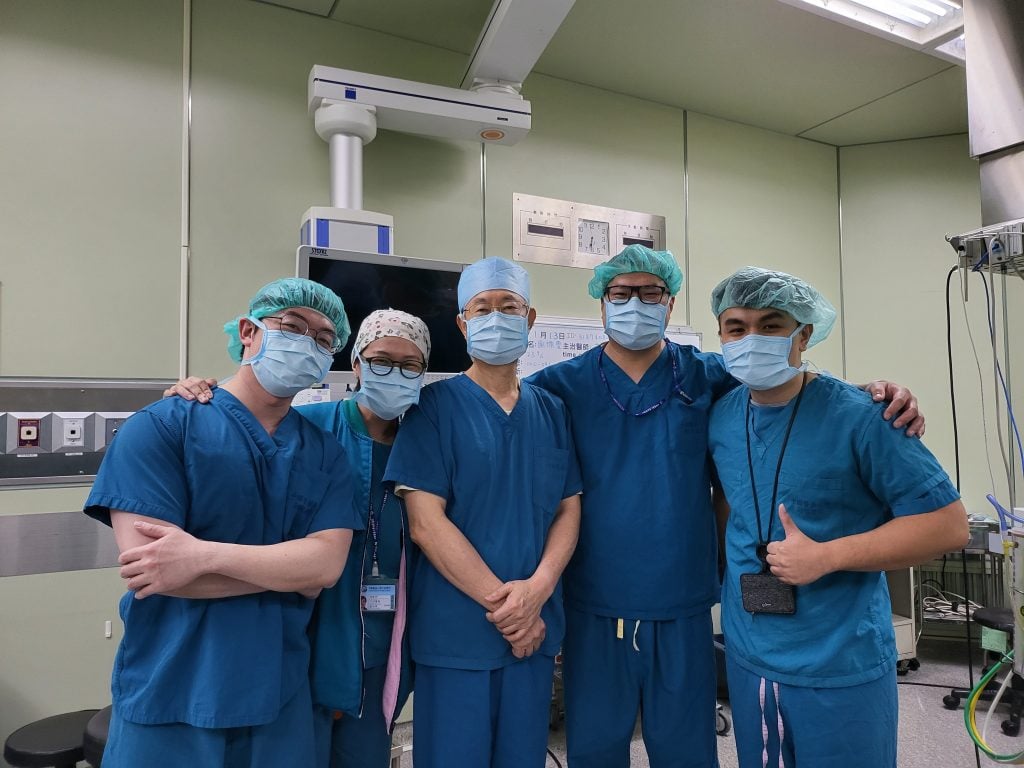
Dr Chen with surgical colleagues at China Medical University Hospital
The primary aim for Alex was to improve his surgical skills through intensive exposure to open, laparoscopic and vaginal techniques, under the mentorship of well-respected gynaecological oncology and urogynaecological surgeons. Alex also wanted to develop his knowledge of complex surgical pelvic anatomy through open and laparoscopic oncological surgery with pelvic lymph node and para-aortic lymph node dissection, and to apply this knowledge to benign gynaecological surgeries such as for deep infiltrating endometriosis.
Finally, during his time in Taiwan, Alex was keen to observe and be immersed in a different medical training environment. He hoped to learn about the regional and cultural variations in surgical training, and determine whether various aspects can be incorporated into Australian medical training.
Alex worked closely with Dr William “Wu-Chou” Lin and Dr Lian-Shung Yeh, two pioneers of laparoscopic surgery in Taiwan, who are respectively Head of Unit and Director of Gynaecological Oncology at China Medical University Hospital. In the early 1990s Dr Lin and Dr Yeh developed skills and techniques that were quite distinct from those that were emerging in other countries in the early days of advanced laparoscopy.
“Learning from my two mentors was an incredibly rewarding experience,” recalls Alex. “Dr Lin and Dr Yeh are gynaecological oncologists who not only perform oncological surgery, but also perform complex benign surgeries including deep infiltrating endometriosis using oncological techniques. Skills sometimes difficult to obtain in Australia and extremely beneficial to my practice were attained from my overseas fellowship.”
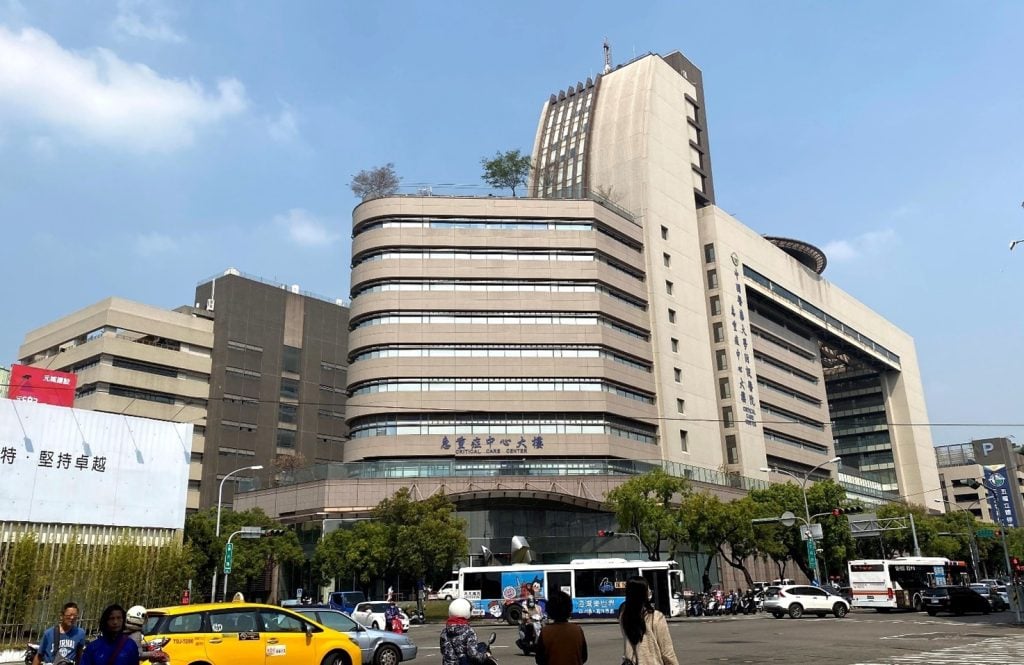
Chinese Medical University Hospital, Taichung City
Alex’s Taiwanese colleagues were friendly, welcoming and supportive in helping him navigate the challenges of practicing in a different public health system, in a different societal and cultural setting, while working predominantly in Mandarin. Despite similarities to the Australian healthcare context in terms of patient expectations, daily hospital operation and resource limitations, there were also notable differences.
“Taiwan is a developed and vibrant democratic economy,” says Alex. “Its public health system has evolved to be very cost-efficient, and access to specialist healthcare is incredibly convenient. Sometimes in as little as one day, patients can self-refer to a specialist and have investigations performed with a surgery date organised within a week.
“However, as a specialist-based system which developed independent of general practice, its highly specialised silos of care can lead to patient confusion on which specialty to see, due to the absence of initial generalists who can diagnose and refer appropriately. This can lead to inefficiencies in healthcare spending, through multiple presentations of patients to different hospitals, and often repeated investigations.”
Along with the challenges of a different healthcare system, Alex also had to adapt to the social and cultural differences of working in Taiwan. Realising what was important to patients in Taiwan meant Alex had to modify his practice to accommodate their wishes.
He explains: “An example of this is the strong cultural focus of Taiwanese women wishing to retain their uteruses, even when future pregnancies were not a consideration, leading to many patients desiring to undergo myomectomies and removal of 10-20 fibroids, rather than a hysterectomy.”

“A developed and vibrant democratic economy”: Taichung City at night
Alex’s year in Taiwan has brought various benefits. He gained extensive technical experience and a deeper understanding in areas such as: pelvic side wall dissection, including ureterolysis; dissection of the pelvic vasculature, including the external and internal iliac vessels and relevant branches; and pelvic and para-aortic anatomy. Alex also acquired a greater familiarity with advanced open, laparoscopic, vaginal and robotic techniques.
“Through this fellowship I am now much more comfortable with general pelvic side wall dissection in laparoscopic and open surgery,” says Alex. “And I have had exposure to a variety of different operative techniques and skills which I had not encountered in Australia. Though the operations are the same, the approach and operative techniques can be considerably different. I believe I can now bring some of these tips, tricks and techniques to Australian trainees.”
More broadly, complete immersion in practicing medicine in a different cultural and societal context has brought substantial benefits for Alex in his general professional approach. He is now keen to apply what he learnt to his work in Australia.
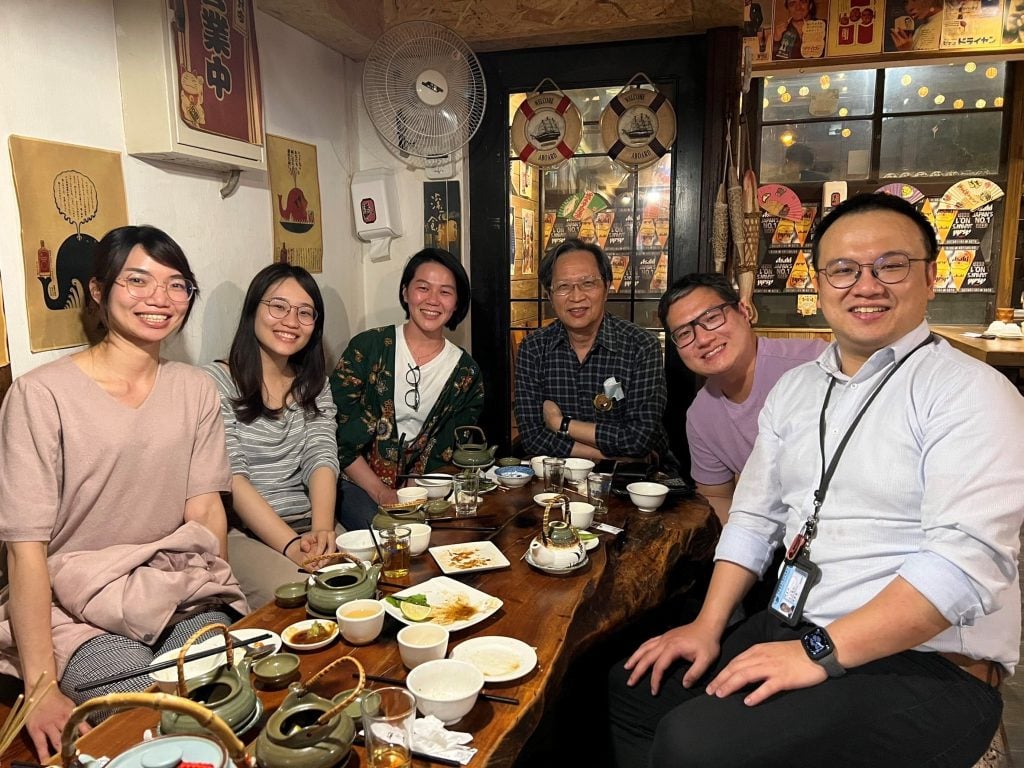
Building networks and enjoying local cuisine – both invaluable benefits of a travel Fellowship!
Alex concludes: “My year in Taiwan has not only taught me advanced surgical skills and techniques, it has also taught me to be more receptive and responsive to sociocultural issues, leading to a greater understanding of challenges and barriers in other healthcare systems. Learning how to interact with colleagues using a different language within a different culture has also been a fantastic learning opportunity. This experience has helped me become a more culturally sensitive obstetrician and gynaecologist and further developed skills which I hope will benefit Australian women in the future.”
To find out more about the Brown Craig Travel Fellowship and to apply, visit the RANZCOG website.


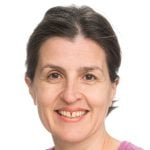
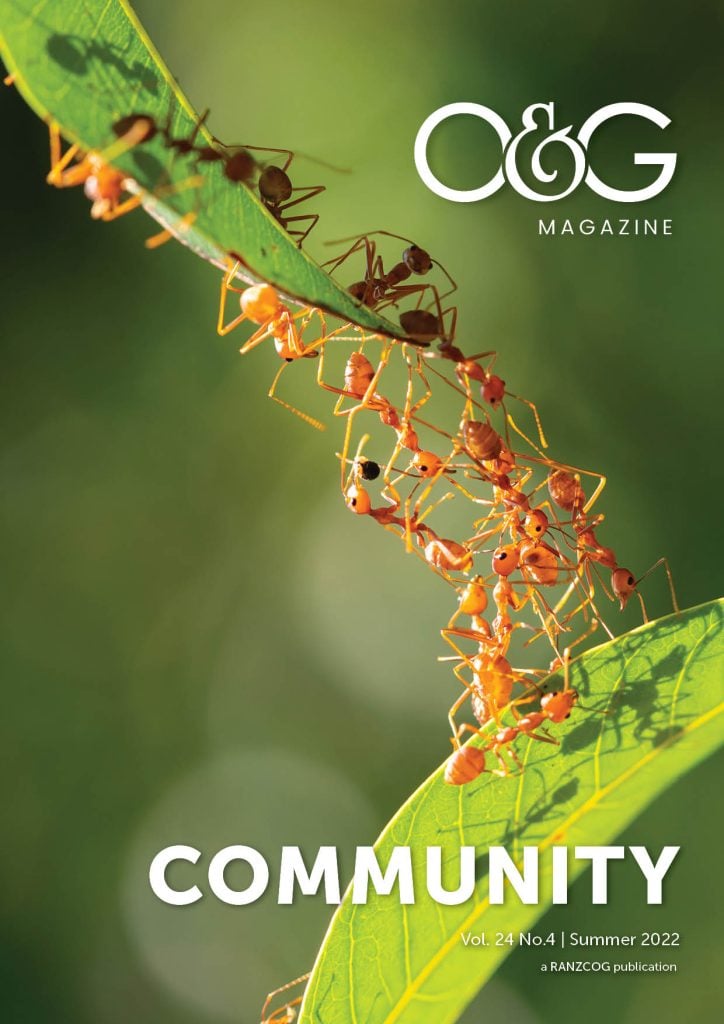
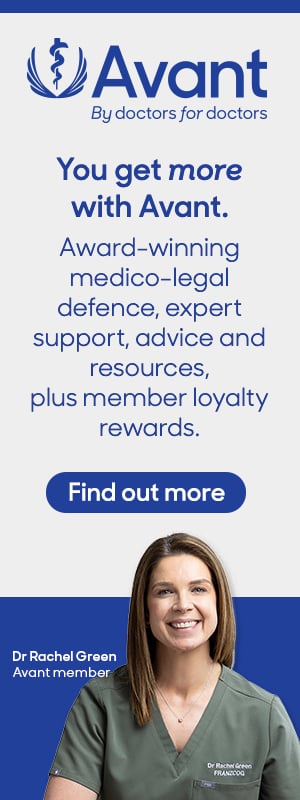

Leave a Reply